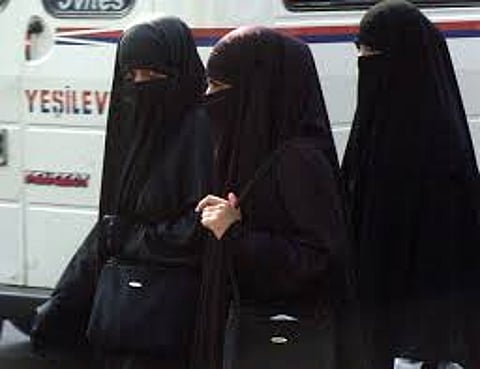

The News Minute | July 1, 2014 | 6:18 PM IST
The decision today by the European Court of Human Rights upholding a French law banning the niqab (full face veil) will not end the continent’s conversation about it. It will provoke numerous debates and discussions about many issues, the most important one being about what being secular means to people, countries and institutions.
It all started when the Strasbourg-based court was seized of the matter after a 24-year-old French woman argued that the ban on wearing a veil violated her freedom of expression and religion. She argued that the law will lead to “discrimination based on gender, religion and ethnic origin, to the detriment of women who wear the full-face veil.”
The 2010 French law which went into effect in 2011 forbids anyone – male or female – to hide their face in many places including the road.
The ban came into effect on April, 2011. As of now, 205 dollars can be fined from anyone one who wears the costume. Read- France Can Keep Burqa Ban, European Court Rules
Beyond the legalese and court battles, the decision raises questions about the fundamental role of schools and other public institutions in developing a tolerant, multi-cultural and multi-religious society. A good test of country’s acceptance of diversity and difference is schools and school holidays.
India is probably one among a few countries – if not the only one – in the world where all religions are respected. School holidays are one testimony. The challenge for Europe as the European Union (EU) is that for all practical purposes it is Christian in practice and secular on paper. Commentators have been quick to point out that the country likely to be most affected by today’s decision will be the United Kingdom (UK).
For several decades now, many European countries have been walking on eggs with the questions posed by the veil. While some countries say people should be allowed to do what suits them best, there are others who say it is not as simple as that.
France, for example, has taken a very firm stand whereas the UK favours what they say is multiculturalism allowing the wearing of all religious symbols and signs. It is a much-debated issue in Germany – for obvious historical reasons – and in Spain, the Netherlands and Belgium partial or a total ban on wearing of religious symbols is in place.
Is the wearing of the hijab, niqab or the burqa a religious, legal or cultural statement? By that token, shouldn’t the wearing of the kappa or the turban or a cross be also examined by a similar yardstick? Can the implementation of freedom of religion adversely affect civil rights? A hundred years ago Europe succeeded in separating the Church and the State and the French were the first to reach that goal. Church applied to all churches and faiths.
How much is dangerous and how little is good enough is a debate that may have just started in a Europe that today is very different from one century.